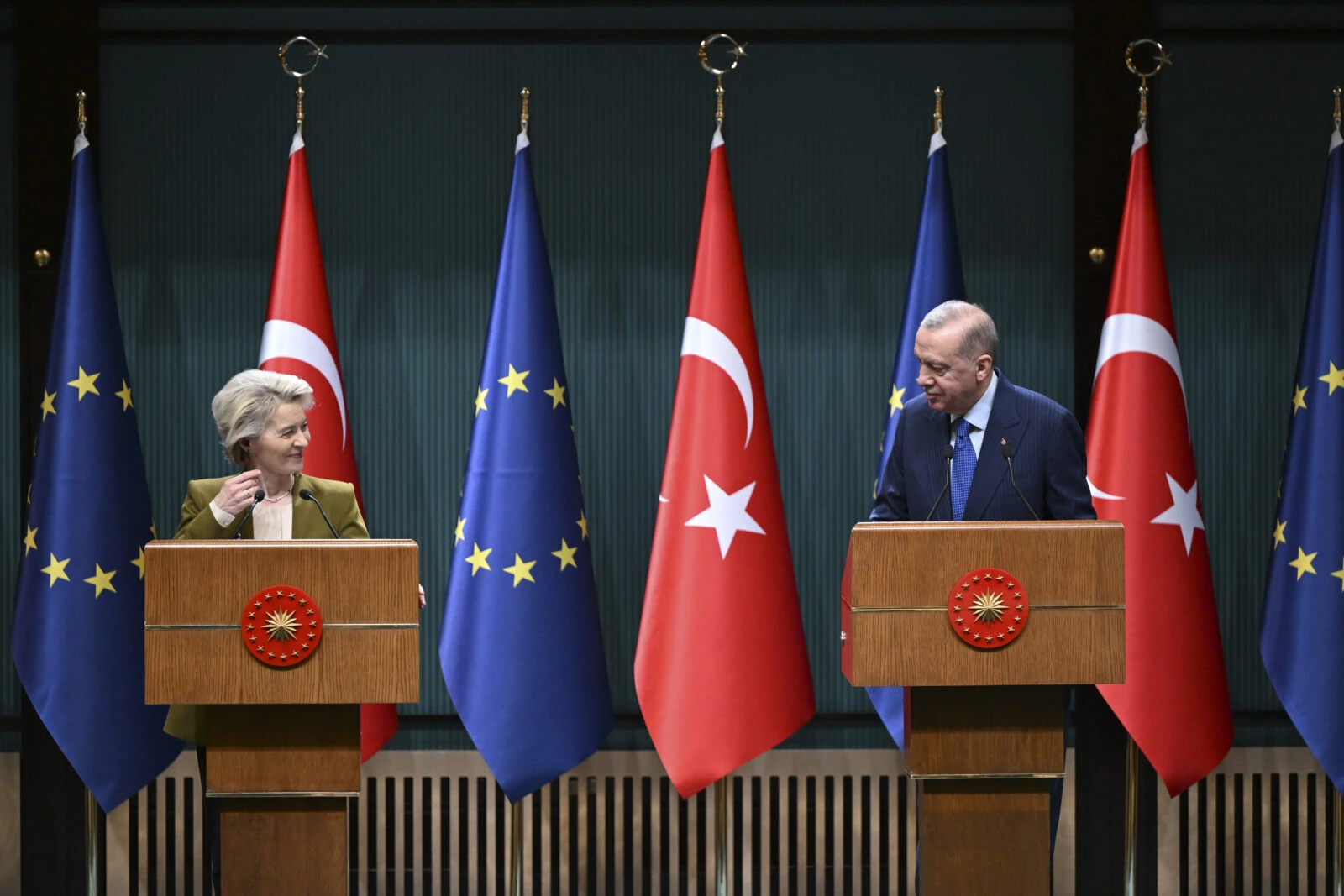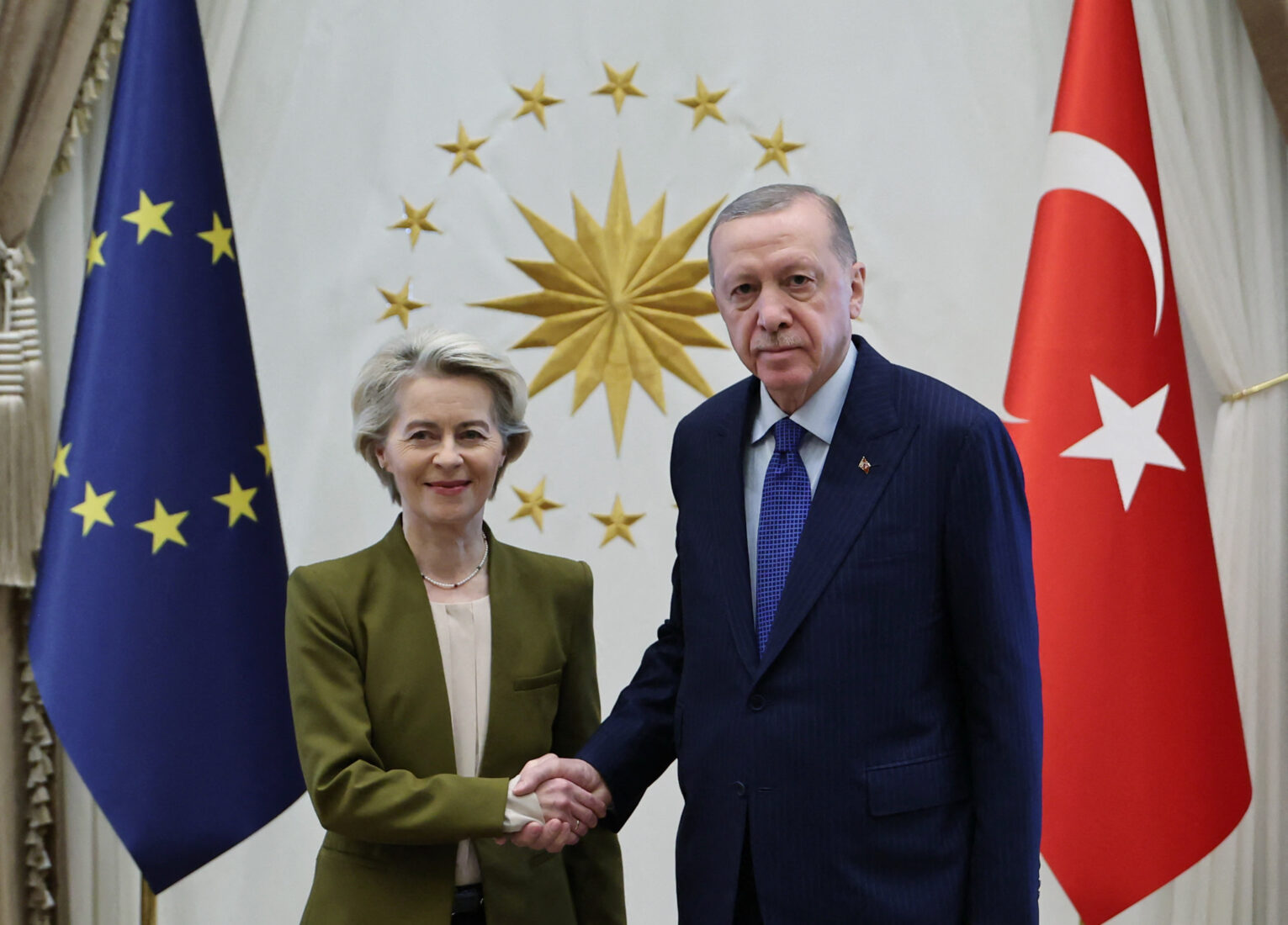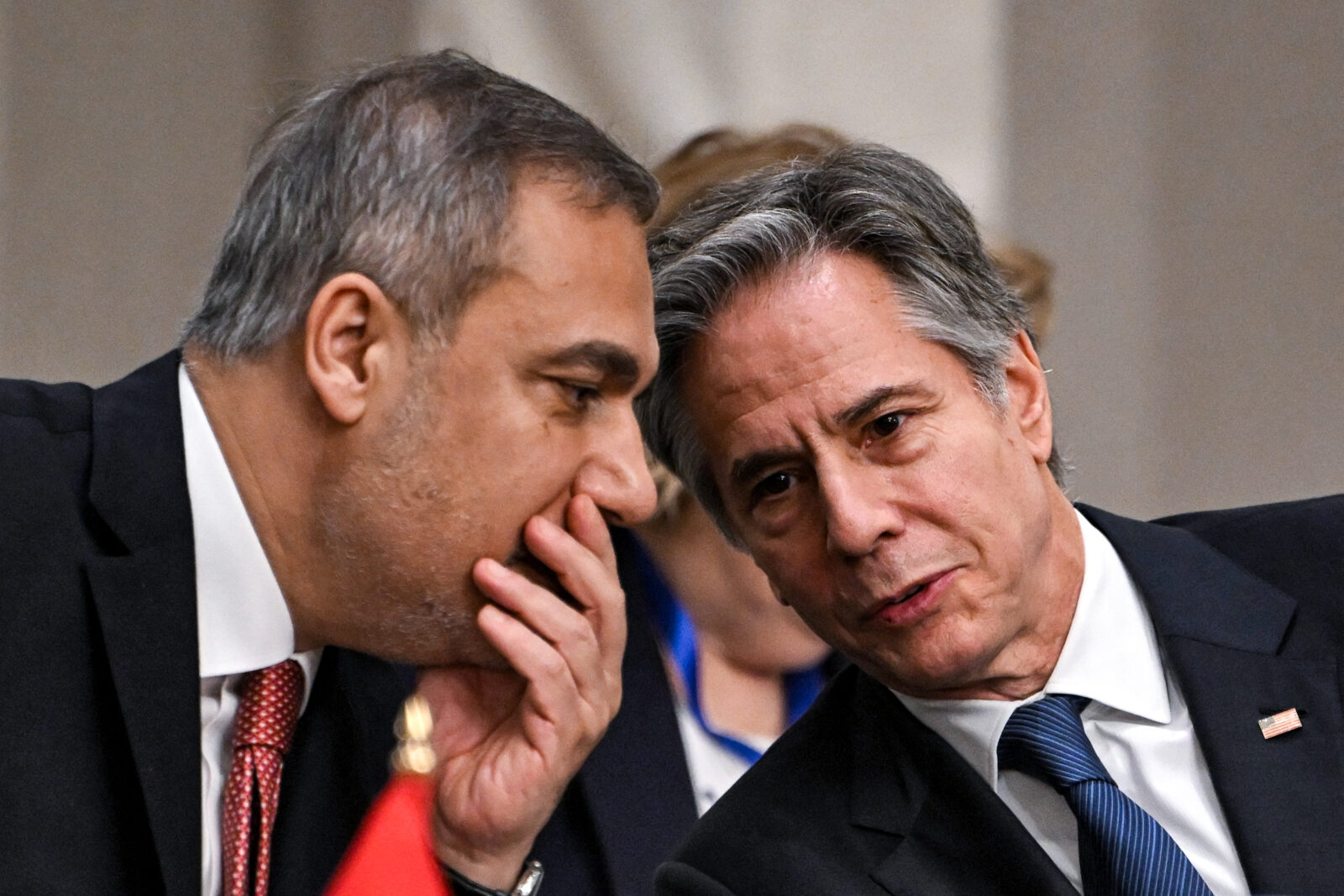So-called foreign policy ‘expert’ Michael Rubin calls on American troops to kill Turks
 Soldiers march during the military parade celebrations marking the 41st anniversary of the Turkish Republic of North Cyprus (TRNC), on November 15, 2024. (AFP Photo)
Soldiers march during the military parade celebrations marking the 41st anniversary of the Turkish Republic of North Cyprus (TRNC), on November 15, 2024. (AFP Photo)
In a provocative and alarming article titled “The United States needs to prepare to kill Turks in Syria” published on Dec.17, Michael Rubin, a “foreign policy expert” with a history of controversial stances, has called on the United States to take aggressive action against Turkish forces operating in Syria.
Rubin’s article, which reads as a direct challenge to American diplomatic norms, not only advocates for the targeted killing of Turkish personnel but also grossly misrepresents Türkiye‘s role in the region.
Rubin’s lack of knowledge about northern Syria
While Rubin presents his piece as a call for strategic clarity, its tone and content betray a much more hostile agenda. Rubin casts Türkiye as a destabilizing force without offering a nuanced understanding of the complex geopolitical realities at play.
The article portrays Türkiye’s military maneuvers in Syria as detrimental to both Syrian stability and American interests. However, Rubin’s framing of Türkiye’s involvement as a threat to American forces conveniently ignores the broader context in which Türkiye is operating, often in response to its own security concerns regarding PKK/YPG, which Türkiye considers a terrorist organization.
Türkiye’s actions in Syria, particularly in the northern and eastern regions, have been aimed at eliminating the threat posed by the terrorist PKK/YPG and similar groups. These groups have engaged in terrorist activities targeting Türkiye, leading Ankara to view them as major threats to its national security. As a NATO member, Türkiye has been an active partner of the United States in the fight against terrorism, including efforts to defeat Daesh, a common enemy of both countries.


Misinterpretation on terrorism
Rubin’s analysis becomes particularly problematic when he calls for a potential shift in U.S. policy that could allow American forces to strike Turkish targets. Such an approach blatantly ignores the fact that Türkiye is a NATO ally and has been a strategic partner in counterterrorism efforts.
While the U.S. and Türkiye certainly have differing interests in Syria, particularly concerning the Kurdish issue, Rubin’s call for retaliation disregards the importance of maintaining diplomatic engagement and cooperation in combating shared threats like Daesh.
The lack of consideration for Türkiye’s legitimate security concerns is a glaring oversight in Rubin’s narrative. Türkiye’s military operations in Syria are, in part, a direct response to attacks by groups such as the PKK/YPG, which have engaged in terrorist acts against both civilians and military personnel in Türkiye. Rubin’s piece fails to acknowledge the broader strategic and humanitarian context of Türkiye’s actions in Syria, including efforts to protect minority groups such as Kurds and Armenians who are at risk from radical groups.
Moreover, Rubin’s suggestion that the U.S. should target Turkish forces in Syria overlooks the grave diplomatic and geopolitical consequences of such a move. A military confrontation with a NATO ally would not only jeopardize U.S.-Türkiye relations but could also undermine regional stability and hinder ongoing counterterrorism operations against groups like Daesh.


Türkiye’s involvement in Syria, while controversial, is deeply tied to its security interests and the need to prevent the establishment of a terrorist foothold along its borders. As Ursula von der Leyen, president of the European Commission, recently emphasized, it is crucial to address Türkiye’s legitimate security concerns, particularly in light of the growing threats from terrorist organizations. In her remarks, von der Leyen acknowledged the need for Türkiye’s security to be considered as part of any solution to the ongoing conflict in Syria.
Rubin’s piece, steeped in aggressive rhetoric, offers a simplistic and detached view of Türkiye’s role in the region. His proposal to target Turkish forces is not only reckless but risks escalating tensions unnecessarily. Instead of promoting confrontation, the U.S. should continue to engage diplomatically with Türkiye, fostering cooperation and dialogue to address shared security concerns in Syria and beyond.


The solution to the complex challenges in Syria does not lie in escalating hostilities but in strengthening alliances and promoting peace. The U.S. and Türkiye, despite their differences, share common interests in combatting terrorism, ensuring regional stability, and supporting the reconstruction of Syria. Rubin’s hostile approach undermines these objectives and could have far-reaching negative consequences for both U.S. and Turkish interests in the region.



